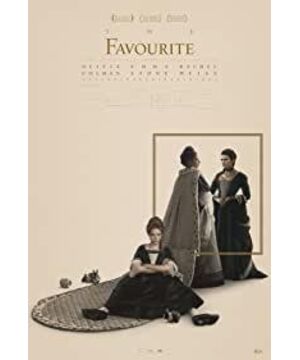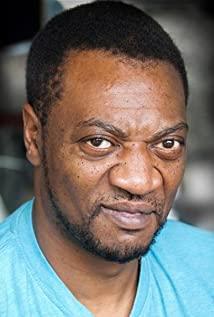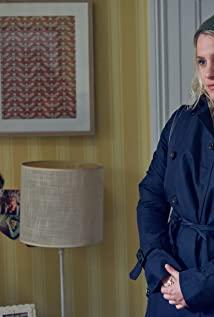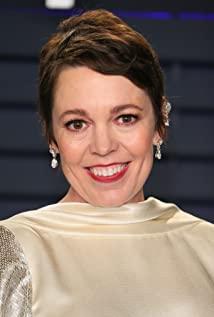Author: Philip Kemp (Sight&Sound)
Translator: csh
The translation was first published in "Iris"
Anyone familiar with Oggs Lansmos's previous works—such as "Lobster" (2015) or "Death of the Deer" (2017)—will know that he does not shoot plausible works. Most of his films have the following characteristics: extremely weird stories, and the characters in the play are always engaged in slow, almost surreal dialogues.
Therefore, in the eyes of the audience, he may be the least likely to shoot this type of director-"Favorite" is a costume film that tells the story of historical characters. However, this film satisfactorily proves that Ougs Lansmos can apply his extremely special technique to the most gentle film genres. Besides, in which historical historical dramas can you see the part of "giving a man a pistol" or a character who loves "the fastest duck"?
In the 1998 film "Elizabeth", Shekhar Kapoor used a charming outsider perspective to examine the cruel rituals and conventions in the British Royal Court. Lance Moss grasped this alienated viewpoint and used this technique to the utmost. The background of this film is set in the court of Queen Anne (the main location of the film is Hatfield Manor in Hertfordshire, which is a complex and magnificent James I building), presenting an absurd man-made society. This society is in a state of almost eternal hysteria, which is mixed with conspiracy, jealousy and fornication. The men were greased and powdered like party queens, and each of them wore tall, curly wigs. The hairs were so huge, like the corpses of a sheep. Their pastimes are naive: a duck race, or throwing oranges at a fat naked man. The simplest provocation will arouse people's anger, even Queen Anne herself. In the process of Olivia Coleman’s absurdly presenting the role of the queen, we seem to see a huge, wounded baby-staggering, sickness, self-pity, overdoting, and fragility to the extreme . Most of her emotions are placed on her pet rabbit-there are seventeen rabbits, each of which corresponds to one of her dead children. (Most of her children were stillborn, or died at an early age; only one boy, who suffered from illness, lived to be eleven.)
The performance level of this film is like a re-enactment of "Comet Beauty" (1950)-it even has some Mankiewicz-style, spiked "glorious misfortune". The success of "Favorite" is also attributed to the performances of three outstanding actresses. The wonderful performances of Davis, Celeste Holm and Anne Baxter can be said to be one of the important reasons for the success of the film). Olivia Coleman has never acted so well, which is extraordinary, and it also confirms her increasingly widening drama. Rachel Weisz played the mighty Sarah, she is the Duchess of Marlborough, very agile, and possesses a dangerous desire to control. She has the ambition to fight for power for herself and her husband, but this ambition is sometimes strong and sometimes weak-because she has true sympathy for the victims of the royal family. Since childhood, Sarah has been Queen Anne's best friend, and they even know each other's nicknames-"Mrs. Morley" (Queen Anne) and "Mrs. Freeman" (Sarah).
At this time, Sarah's cousin and the queen's confidant's final competitor, Abigail Hill, gradually emerged, and this role was played by Emma Stone. From a more extreme perspective, the actor "returned" to the role she played in "City of Philharmonic" (2016). In this place of "covering evil in a civilized form," in this poisoned society, she is aware of the urgency of survival. Later, she gradually realized the coldness and determination that grew in her heart. Her attitude towards her suitor, Colonel Massam, changed from provocative contempt (whether before or after their marriage) to retaliatory violence: when the colonel met her in the woods, and planned to take a tougher one. When courting, she kept kicking his lower body.
This film draws on historical facts: Sarah Churchill is indeed the queen’s confidant, and possibly her lover, and her position has indeed been replaced by Abigail Massam (originally named Hill) . Despite this, Lance Moss and his screenwriter Tony McNamara (the screenplay is adapted from the original work by the non-fiction writer Deborah Davis) did not subject themselves to any historical authenticity: this one The dialogue part of the film—and of course some dance links, as well as some other elements—is completely out of line with the times. “One of us is Australian and the other is Greek,” McNamara explained. “Oggs and I don’t particularly understand British history, so we may be able to advance the story more freely and faster. It will be more relaxed. We have a general understanding of those important events and the overall framework of the story, but what we are most concerned about is to explore the relationship between these three women. So, if the established historical facts are right If we are useful, we let it stay; if it’s not useful, we don’t care about it. It’s actually fun to do.”
It looks equally interesting. In the soundtrack of this film, we can hear a certain mixture. "Favorite" often has the works of different musicians arranged in a jumbled manner, including composers (Handel, Purcell, Bach, Vivaldi) at the same time as the setting of the film, which is slightly different from some of the times. The musicians (Schubert, Schumann, Messien), and even some weird and urgent metal sounds, they seem to come from a certain factory off the screen. In the film, we can also see that Lansmos uses his iconic fisheye lens, fast tracking, cart lens and the like. The design of clothing and scenery can also be called magnificent. "The Beloved" presents us a bustling and noisy, often extremely degenerate costume comic. Lance Moss once claimed that this film "subtly refers to reality, and we can discover and recognize similar events in contemporary daily life." Whether "Favorite" has achieved this is still debatable. But in any case, it can be called a rare work, because it provides us with exciting alternative entertainment.
View more about The Favourite reviews











